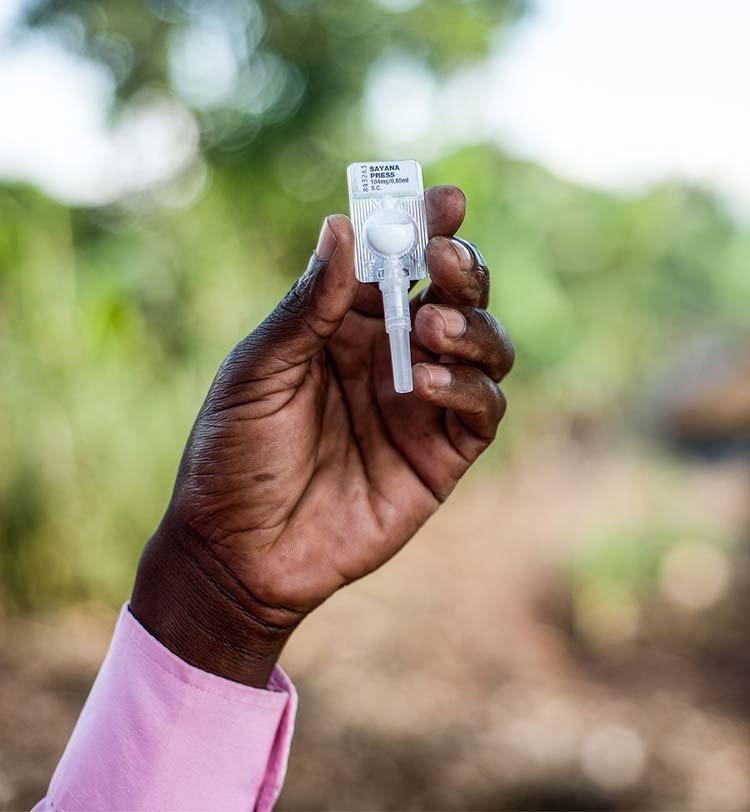
On October 9, 2018, during the national family planning validation meeting, Kenya’s Ministry of Health amended its family planning guidelines to allow pharmacists and pharmaceutical technologists throughout the country to provide subcutaneous and intramuscular depot medroxyprogesterone acetate (DMPA-SC and DMPA-IM). This policy change opens up an alternative for women and adolescents who may be reluctant to seek contraception at health facilities. It also expands the role of private sector in reducing commodity shortfalls.
Prior to the amendment, pharmacists and pharmaceutical technologists could only refer clients who opted for injectable contraceptives. Pharmacy outlets, commonly known as chemists in Kenya, are popular outlets for dispensing drugs and offering family planning methods, especially pills. With the aim of enabling more women and girls access contraception as well as expand options, AFP local partner Jhpiego led advocacy efforts, working alongside like-minded organizations for more than three years to engage various decision-makers to support the necessary changes.
Early in the process, advocates held a meeting with the President and the Chief Executive Officer of the Pharmaceutical Society of Kenya (PSK) to enlist their support for a policy exemption that would allow pharmacists to provide injectable contraceptives. Following this meeting, the President and CEO advocated for the policy change before the full PSK Council, resulting in their support of the policy exemption.
Jhpiego then facilitated a joint meeting between the Ministry of Health and the Pharmaceutical Society to explore the policy exemption. Both parties agreed in principle that only pharmacists trained in administering injectable contraceptives would be allowed to provide the method. The pharmacy outlets would also require a counseling area and expected to submit data to the Ministry of Health.
Advocates suffered a major setback however when the leadership of both MOH and Pharmaceutical Society transitioned. This meant going back to the drawing board to engage with the new leadership and earn their commitment. Once this was achieved, the Ministry of Health with support from Jhpiego and the Clinton Health Access Initiative convened a stakeholders meeting in June 2018 to review and finalize the National Family Planning Guidelines.
Following the advocacy efforts for the policy exemption, the Ministry of Health agreed to amend the guidelines and subject it to the national validation, through which the amendments were approved.
The next steps in implementing this policy change include training pharmacists and pharmaceutical technologists in DMPA-SC and IM, strengthening data linkages between pharmacy outlets and the national health information system, and including DMPA-SC in pre-service training.

